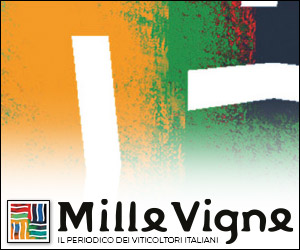Lorenzo Biscontin
The other day I read the interview that Clemens Gerke did with Lamberto Frescobaldi, published in Meiniger’s International and I was particularly struck by the last part of the last answer of the interview:
“The origin of the wine is of utmost importance. The connection between the vineyards, the people distributing it, and the market out there must be in harmony. I hope that no one dares to drink the same wine every day of their life, for that would be very sad. Let’s stay curious.”
He struck me because he clearly showed the main specificity that characterizes the consumption of wine compared to other drink and food (and even non-food) products. Specificity which, however, is almost always forgotten or left out in the development and implementation of winery strategies.
We could define this specificity as “intrinsic disloyalty of the wine consumer to the brand”.
The weakness of brands in the wine sector is a well-known problem and Robert Joseph recently spoke about it well in his article “The Value of a Brand”.
If we look at what happens in other food and drink sectors, we notice how each of us has our own favorite brand to which we are essentially faithful. This applies both to products with low frequency of consumption, such as liqueurs and spirits, and to those of frequent consumption, such as coffee, pasta, chips, etc…
Once I find the brand of coffee I prefer, for all the tangible and intangible reasons I associate with it, I always drink that every day. I don’t change it depending on the season, the dishes I ate, etc… Indeed, people’s habit of a certain taste becomes a tangible barrier to changing towards competing brands. It’s the taste I like because it’s what I’m used to.
It may happen that the marketing strategies of the brands, my favorite and the competitors, lead me to try others that promise to be (for me) better. If these promises are kept, perhaps I will change my favorite brand, but with the new brand I will return to the same basic loyalty behavior described above.
The whole theory and practice of branding is based on this concept: gaining the consumer’s loyalty through building and maintaining a recognizable and (for them) relevant brand, because through this loyalty I increase the value of my brand.
When actions are implemented that break the loyalty of competing brands, for example price promotions, the aim is to make consumers try the new brand with the final aim of building loyalty so that from then on it becomes their favorite brand.
In a certain sense it is therefore logical that this approach is used by practically all wineries.
However, consumer behavior towards wine is intrinsically contrary to this model, which instead applies to all the others (probably because the “wine” category includes extremely heterogeneous products in terms of sensorial profile, history, territory, values and therefore it is all anything but unique).
Even expert consumers who know the different brands/wineries and certainly have their favorites are always willing and curious to try and discover a new wine.
For those less experienced, the brand represents a guarantee, but in any case, loyalty will only be expressed in certain moments of consumption and not in others.
Becoming aware of this different approach to the “wine” category by the consumer has an important operational implication: developing marketing strategies (of which, remember, the product is also part) which aim to develop absolute brand loyalty risks leading to the development of ineffective strategies because they are not very relevant to our audiences. Not very relevant because they are misaligned with their reading of the market and therefore with their purchasing and consumption behavior.
In other words, the classic objective of absolute fidelity in wine is impossible to achieve. What’s worse is that it distracts from the achievable and desirable objective of relative loyalty, i.e. linked to certain contexts, moments, situations.
Thank you Lamberto Frescobaldi, from today on, for me, the new Steve Jobs.



